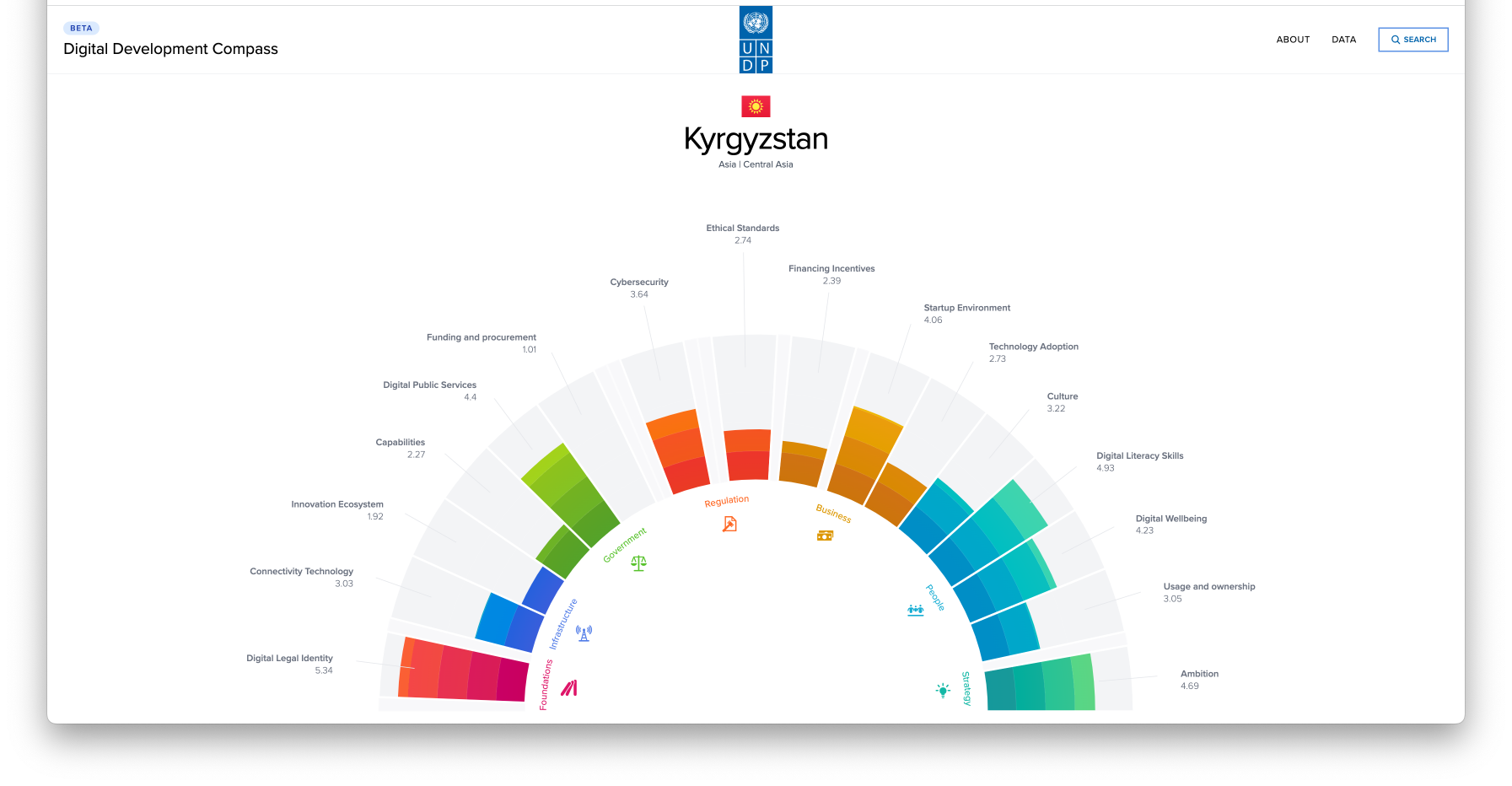The United Nations Development Programme (UNDP) is the United Nations’ lead agency on international development, they work in 170 countries and territories to eradicate poverty and reduce inequality. UNDP works with countries to develop policies, leadership skills, partnering abilities, institutional capabilities, and to build resilience to achieve the Sustainable Development Goals. As part of UNDP’s digital mission, “Creating a world in which digital is an empowering force for people and planet”, the organization’s new digital office created the Digital Readiness Assessment.
This Assessment aims to identify and prioritize digital interventions as part of a country’s digital transformation journey by highlighting the current digital context of a country – from a context where basic digital foundations may be lacking, or incomplete, through to the case of a country where digital is a central tenet of national growth and development. With this mass of data, the UNDP needed an easy way to aggregate the data to then finally share it visually with funders and governments. This is where GitHub’s Skills-Based Volunteering (SBV) program came in!
Data Manifest and Flat Data
In October 2020, Mark Belinsky, Digital Innovation & Scaling Specialist at UNDP, and GitHub Staff Researcher Engineers, Matt Rothenberg, (@mattrothenberg) and Amelia Wattenberger (@Wattenberger) began working on this SBV project. The first phase of the project was to aggregate the data sources and process them. Using GitHub Actions, the team built an automated tool to process public datasets into a structured, normalized state and ultimately allowed for the data to be usable for a visualization. This Action pulled data from over 180 different sources all with various formats, such as JSON, CSV, or Microsoft Excel, into a data manifest. The GitHub team used GitHub Flat Data to generate a flat file by pulling out the requisite rows or items from a CSV file to make sure data flows into a post process script.
Digital Development Compass
Once the data manifest was built, the project team was then able to take hundreds of existing public data of a country’s digital indicators and make them usable for the first time. The project team began phase two of the project starting with the design framework for the data visualization.
The project team worked for over a year on the data visualization which ultimately became the Digital Development Compass. The Digital Development Compass allows users to interact with the data to understand the digital state of any nation and see comparisons and recommendations. It is the biggest compilation of global datasets on digital transformation; aggregating and visualizing these metrics for the first time. Each country can be viewed under the seven data pillars in the tool, based on the UNDP’s Digital Transformation Framework: Business; Foundations; Government; Infrastructure; People; Regulation; Strategy.
Each pillar is mapped to a sub-pillar and each sub-pillar maps to a specific stage of digital transformation. The sub-pillar consists of any number of individual indicators which are used to calculate a country’s Digital Transformation Score per sub-pillar. These scores are mapped to definitions explaining each stage of digital transformation. Finally, each country is categorized according to their stage of digital readiness from a score of 1-5.99.
 Pictured: Globe view of the Digital Development Compass with pillars
Pictured: Globe view of the Digital Development Compass with pillars
Project Outcome
After over 400 hours of work, the Digital Development Compass was successfully launched at the United Nations General Assembly in September 2022! The Digital Development Compass resulted in a number of key benefits to UNDP and governments. It has led UNDP to be at the center of the global discussion on digital development by establishing an advisory group to contribute to, curate, and maintain their universal database. As of the launch, one country has used this tool to directly inform the development of a nationwide ‘smart vision’. The tool is also a Digital Public Good and the data sets are being used to support human rights groups as well as the UNDP gender team.
 Pictured: Data pillars for Kyrgyzstan
Pictured: Data pillars for Kyrgyzstan
Sincere gratitude to Matt Rothenberg, Amelia Wattenberger and Mark Belinsky for all their hard work on this project!




 Pictured: Globe view of the Digital Development Compass with pillars
Pictured: Globe view of the Digital Development Compass with pillars Pictured: Data pillars for Kyrgyzstan
Pictured: Data pillars for Kyrgyzstan